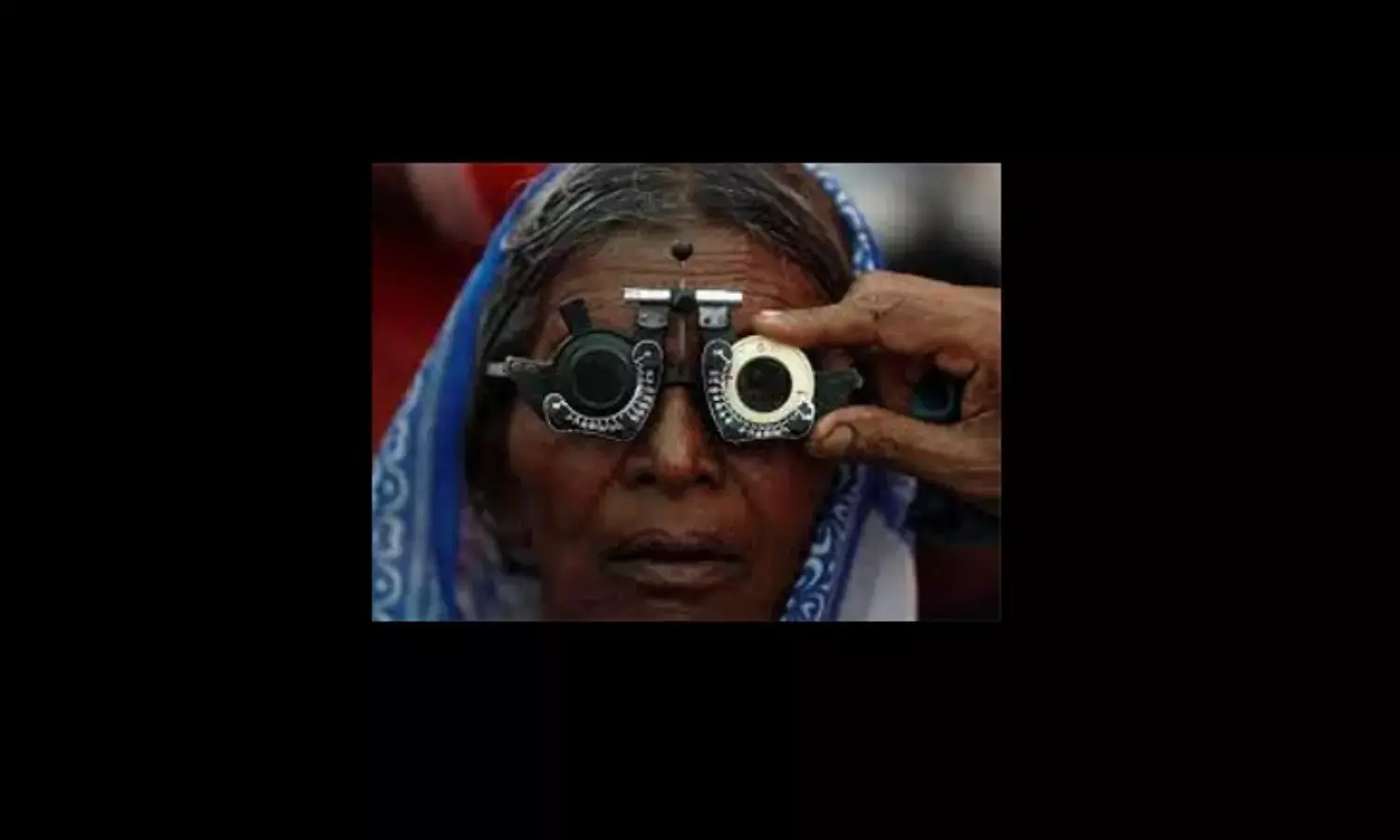Drastic Fall in Eye Donations Since Pandemic Outbreak
India lags in treating corneal blindness due to a lack of tissue

To add to the cascading detrimental impact of Covid19 on almost every aspect of public life, the incidence of eye donations has fallen steeply in India. It is well known how the outbreak and lockdowns saw outpatient and other services being hit in several prime medical institutions, but even the all important health campaigns had to be put on hold, and the impact is now becoming evident.
Last year according to reports there was an 80% decrease in eye donations and 78% decrease in the number of keratoplasty surgeries (which replace part of your cornea with corneal tissue from a donor) in the months of March to June all over India.
Now the fall in eye donations has once again been flagged by health experts from across the country, at the Chandigarh based Post Graduate Institute of Medical Education and Research (PGIMER) in a national level consultation on Activating Eye Banking Post Covid Pandemic.
Dr Radhika Tandon from AIIMS New Delhi observed at the consultation that eye donations have seen a drastic fall, leading to a serious shortage of the corneal tissue needed for transplants to restore vision in people suffering from loss of eyesight due to irreparable tissue damage.
Tandon said the opportunity exists for Indian eye banking to grow rapidly and sustainably by leveraging global best practices with leading eye banks in India.
Elaborating further, Dr Rakesh Gupta, a former Director of Health Services in Punjab who is now associated with the Strategic Institute for Public Health Education and Research (SIPHER) said that there are around 1.2 million corneal blind persons in the country and about 20,000 to 30,000 cases get added every year. The country also has five to six million unilateral corneal blind people.
While India has made great strides in addressing blindness overall, it lags in treating corneal blindness due primarily to a lack of transplantable corneal tissue, Gupta explained.
He said further that awareness campaigns and eye bank development efforts in the past seven years had shown ‘modest success’ with an increase in transplant surgeries from 2011 onwards.
Rajya Sabha member Dr Vikas Mahatme, an ophthalmologist of international repute and a Gandhian, deliberated upon the suggestions from experts for activating eye banking in the wake of the pandemic and promised to take up the issue at the highest level.
He is founding medical director of the Mahatme Eye Bank Eye Hospital in Nagpur which has performed over 1.8 lakh eye operations, over 80,000 of them free of cost.
Mahatme said there is a need to activate the Hospital Cornea Retrieval Program (HCRP) to get more good quality corneal tissue. All states also need an apex eye bank for processing the donated corneal tissue and distributing it to keratoplasty centres where required.
Emphasizing the need to have more trained cornea surgeons as well, he underlined that eye donation centres should be available at the tehsil level so that the eye donation movement can percolate to the villages.
He agreed with the suggestion that experts have been making for some time, that the rules for implementation of the Transplantation of Human Organs and Tissues Act (THOTA) need to be changed to make the process of eye donation simpler.
Professor Jagat Ram, who is the Director at PGIMER besides being a renowned eye specialist, spoke of the need for a coordinated effort by all stakeholders so that patients waiting for cornea transplants are not made to wait too long, given that the Covid situation is stabilized for now.
He also said that people need to be motivated to donate the eyes of family members in case of a mishap.
Conference participants also highlighted the need to increase manpower and improve infrastructure in eye banks and keratoplasty centres.
In fact Punjab has been a case study in addressing the issue of corneal blindness. The state conceptualized and launched a Corneal Blindness Backlog Free (CBBF) initiative from 2015 onwards. It is now in the process of reinvigorating the initiative, which has all the stakeholders including government and private corneal surgeons, NGOs, paramedical staff and even the police on board. Under the initiative the state made major gains in terms of qualitative improvement in eye donations and keratoplasty surgeries as there was regular monitoring.
It was Dr Radhika Tandon who was approached for expert guidance to formulate and implement the action plan to clear the backlog of surgically treatable corneal blindness in Punjab, and to conduct an independent review of the progress and development while suggesting course-corrective measures from time to time.
One of the biggest achievements of this exercise was that it was the first time that corneal blindness was recognized as a problem worth tackling in mission mode. Punjab was the first state to launch an initiative to become a corneal blindness backlog free state.
In practical terms it was realized that waiting lists are dynamic, but at least the backlog of corneal blind patients treatable with keratoplasty should be taken care of. It was estimated that there would be 1,400 patients and to round off, assuming an average 50% utilization rate 3,000 corneal donations would have to be arranged.
Some state-specific rules were changed to facilitate eye donations and charges for registration were reduced to boost the movement. According to reports 2,452 corneal tissues were procured and 1,505 cornea transplant surgeries were performed in Punjab from 2017 to 2019.



